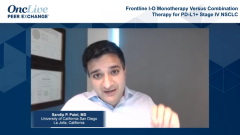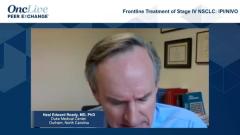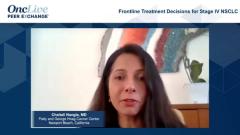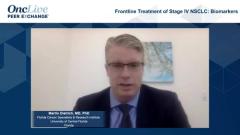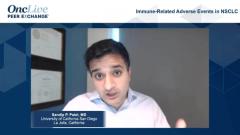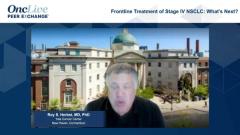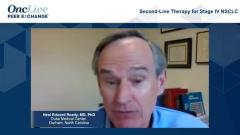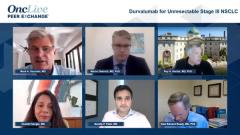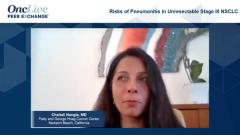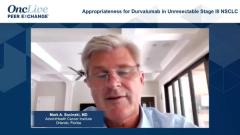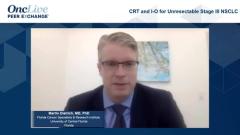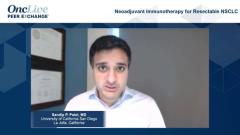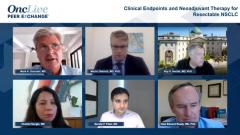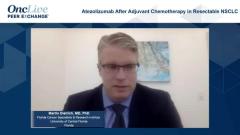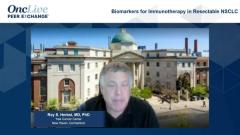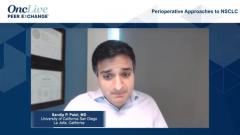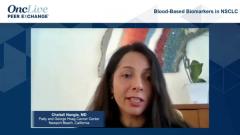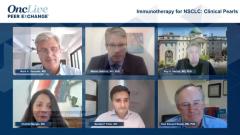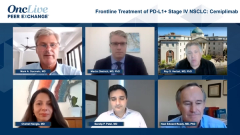
Second-Line Therapy for Stage IV NSCLC
Second-line treatment recommendations for patients with stage IV non–small cell lung cancer who experience disease progression after immunotherapy.
Episodes in this series

Mark A. Socinski, MD: Before we move on, I want to go back to Neal. Essentially what we’ve done here is take what we used to do in the second line, which was immuno-monotherapy, and graft it on to standard first-line regimens. We combined first- and second-line standards in this setting. We’ve had a nice discussion about how successful that strategy was, but what do you do afterward? What do you do now in the second-line setting for these patients? The vast majority of patients are getting [chemotherapy/immunotherapy] combinations in the first-line setting. What do you do afterward?
Neal Edward Ready, MD, PhD: Thanks, Mark. Of course we’re trying to use clinical trials to figure out how to overcome immune resistance. When that’s not possible, for patients who have seen single-agent IO [immunotherapy], we’re going back to a platinum doublet, where patients who received chemotherapy/IO initially, we’re falling back on docetaxel, sadly. But I think that some of the progress we’ve made in KRAS, which you know KRAS tumors often do respond to immunotherapy, but they often eventually progress. The advent of targeted therapy for KRAS G12C gives us another option. Hopefully we’ll have more molecular therapies for some of these immune responsive tumors.
Mark A. Socinski, MD: It’s very nice after many years of not having a KRAS strategy, at least for a portion of the patients with KRAS [mutations], we do have a new option, which the recent data updated at ASCO [American Society of Clinical Oncology annual meeting] on the CodeBreaK 100 trial looked pretty promising. The only thing I would add is don’t forget about anti-VEGF in the second-line setting. I do use a lot of ramucirumab with docetaxel in this particular setting.
TRANSCRIPT EDITED FOR CLARITY


